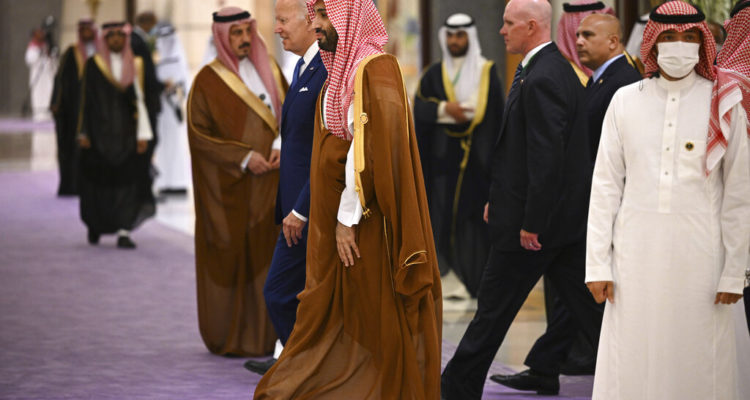Focus on Ukraine and China will hurt Israel, both because Iran threat is being ignored and Arab states feel alliance with Washington is weaker, says Elliot Abrams.
By Batya Jerenberg, World Israel News
A foreign policy expert and adviser to three presidents said that the United States is disengaging from the Middle East to the detriment of its own interests and Israel’s, The Media Line reported.
Elliott Abrams, who served in three Republican administrations, including that of former president Donald Trump, told the news agency’s Spanish podcast Medio Oriente 123 that in his opinion, the Biden administration has shifted its focus to “the Ukraine war and on the competition with China. And it seems like they do not want to invest so much in solving the problems of the Middle East.”
This includes, first and foremost, a willful blind eye to the global danger that Iran presents, which he regards as the most pressing issue in the region.
“What is the U.S. policy toward Iran? Non-existent, in my opinion. There is no policy and, in the meantime, every month the Iranians keep progressing and getting closer to achieving a nuclear weapon,” he said.
Washington is also in danger of being seen as a paper tiger on this issue, he warned, since it isn’t vigorously challenging those who are breaking American sanctions against the Islamic Republic. China, he noted, has thrown a lifeline to Tehran with its huge oil trade, without facing consequences.
Sunni Arab allies have taken notice of American inaction against their foremost Shiite foe, which also includes ignoring Iran’s support for terrorism and aggressive actions against them, Abrams said. This is especially true of Saudi Arabia, which has experienced attacks by Iranian terror proxies with no response from America.
Concluding that it can no longer rely on Washington has led Riyadh to resume relations with Tehran in March through Chinese mediation, as a way to “hedge” its bets in protecting itself, he noted.
Another way the U.S. has shown weakness, and very visibly left the region, was its withdrawal from Afghanistan last year and its abandonment of its allies in the country, Abrams said.
This impression that Washington wants less and less to do in the Middle East is not good for Israel, he noted, because Arab states that thought they had an unspoken security partnership with Jerusalem and Washington may now think that this is “unachievable.”
In addition, in contrast to past decades when they saw Israel “as a country that has lots of influence in Washington,” they have noted the current strain between the Biden and Netanyahu administrations and may conclude that it doesn’t pay to be openly friendly with the Jewish state.
On the other hand, he added, the leading Arab country, Saudi Arabia, “has what they want,” which is an under-the-table security relationship with Israel. And they are convinced that Israel will act against Iran if Jerusalem feels the nuclear danger is too great, thereby removing Riyadh’s main regional enemy.
In any case, the veteran policy analyst opined, Riyadh will not normalize relations with Israel until Crown Prince Mohammed bin Salman becomes king, as he has much less of an emotional attachment to the Palestinians than his father, the current monarch.
MBS, as he’s known, has already noted a list of things he would want from the U.S. in exchange for diplomatic recognition of Israel, and progress on Palestinian-Israeli peace was not on it.




